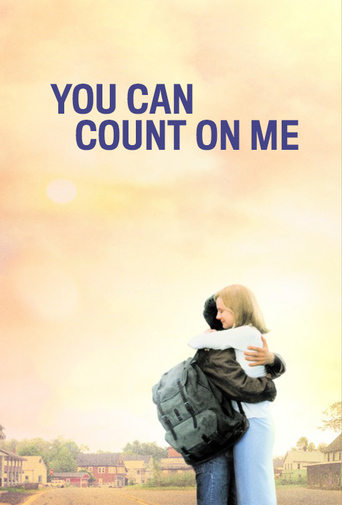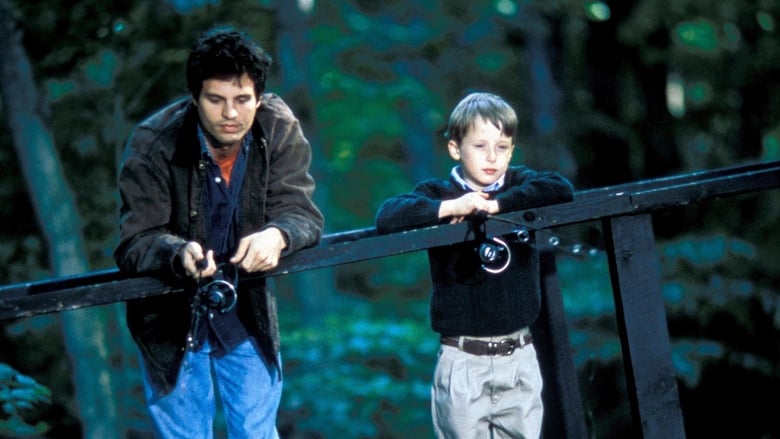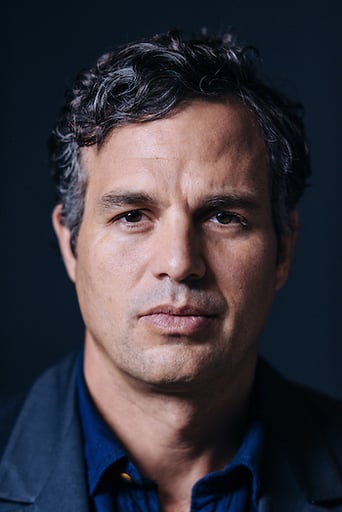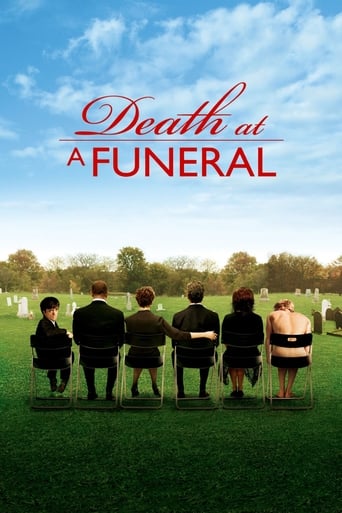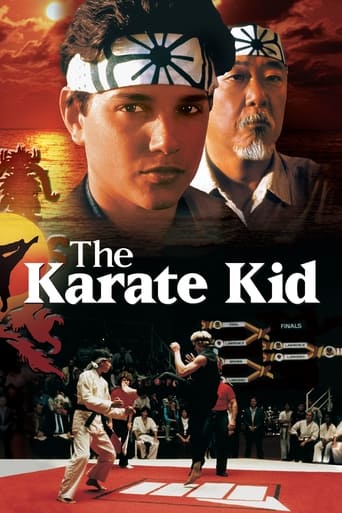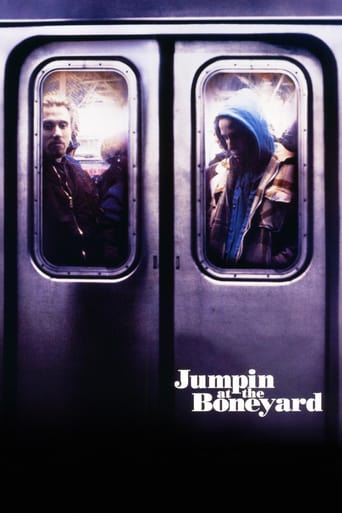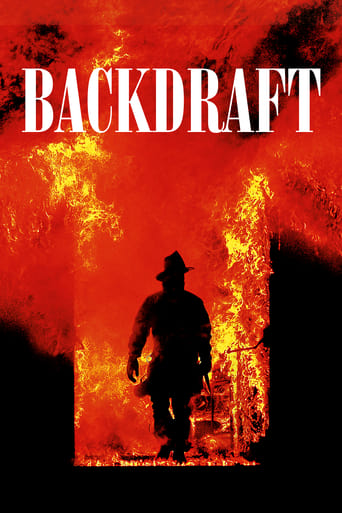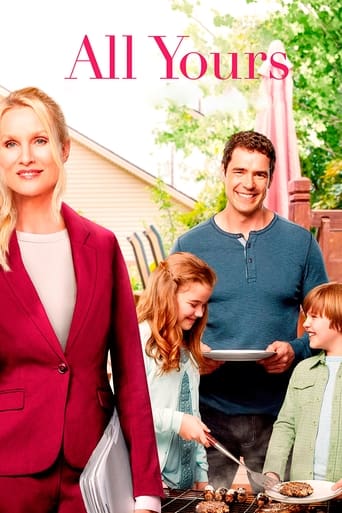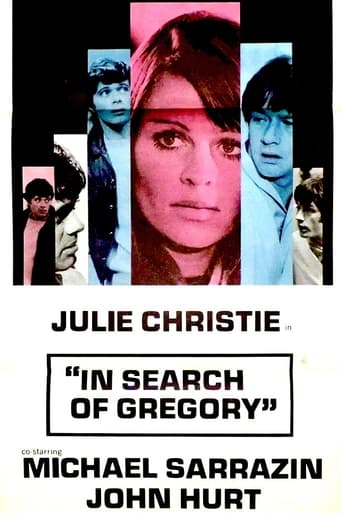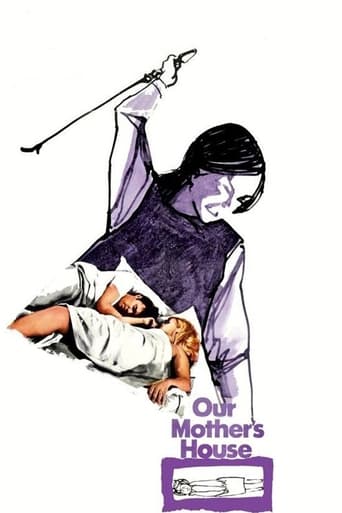You Can Count on Me (2000)
A single mother's life is thrown into turmoil after her struggling, rarely-seen younger brother returns to town.
Watch Trailer
Free Trial Channels
Cast


Similar titles
Reviews
Waste of time
everything you have heard about this movie is true.
Very interesting film. Was caught on the premise when seeing the trailer but unsure as to what the outcome would be for the showing. As it turns out, it was a very good film.
The performances transcend the film's tropes, grounding it in characters that feel more complete than this subgenre often produces.
Kenneth Lonergan's debut film, above all things, attempts to reconcile with the fact that a brother and sister can grow up together but lead two completely different lives, and that there is ultimately little they can do to understand the other. The opening scene depicts their parents' death at a young age, and from there you can extrapolate how the rest of their childhood went; who sprung into action to take over as the stand-in adult, and who moped and drifted off into a winding trial of odd jobs and couches. Linney was born for this role. You could scarcely imagine her as a kid; she must have left the womb in a pencil skirt and wagging a stern finger. Her excitement for Terry's visit doubles as an extension of her pride in her own competence. It's her fault if she can't provide for him, never mind the fact that he is a full grown man. In their first reconciliation in the cafe, and in their subsequent spars which recall all the fights they had in the family home, Lonergan shows a knack for writing dialogue that ducks and weaves around the point, always concealing underhanded blows and accusations amongst the awkward pauses. Sammy's way of life is an affront to Terry's decisions, an unspoken condemnation in her every move. I've seen this film a dozen times before, we all have. Usually it's pitched at the romantic comedy level, where the rough, rogue drifter returns to town and slowly but surely wins the heart of the poor widow. Oh, there'll be tricks and misunderstandings, the classic one set up here where the drifter is set a simple task (such as picking up a kid from school) and everything that could go wrong does. You expect Linney to be given an opportunity to explode her, and god knows she's been looking for one. What we get instead is a quiet moment of bonding. Rudy Junior is nailing the planks on diagonally but Terry doesn't even scold him for it, just advises him on hammering technique. Elsewhere, you watch how their relationship evolves into one of co-dependency, Rudy finally finding the father figure he never had, and Terry spending time with someone that doesn't take one look at his second-rate clothes and scraggly beard and write him off. Watch the ease in which Lonergan slips exposition in the tentative initial moments, not as story dumping, but as one of the ways in which the pair try to figure out what they mean to one another. Sammy, on the other hand, begins to have her modest yet efficient life unravel. Linney's eyes do most of the work, widening in panic whenever out of the ordinary threatens the idyll of Scottsville, New York. She dates Bob, a man so plain and unremarkable that by the end of the film we still know nothing of his character (even his name is boring). Sammy indulges in her own little sins on the side, like a smoke every now and again, and a full blown affair with his uptight boss. Her confession of the latter to the local pastor speaks volumes of the way she perceives right and wrong; she'd rather be told that she's condemned to burning in hell than admit that every now and again people need a break, and that life can get a little messy. The reveal of Rudy Junior's red neck father is the final straw - all along we've been shifting uncomfortably at the Terry-sized intrusion into her life, but he's a saint in comparison to the man that Sammy fathered a child with and then promptly broke off. Lonergan himself plays the small town priest Ron, a decisive departure from many of the more conventional Catholic authority figures the screen has graced us with. He plays the role with not a single moment of emotional betrayal, a stony faced mask that functions as a disposal point for strangers to unload their woes and worries. In a monologue that encapsulates the film, he muses on his own personal philosophy of happiness and comfort (defined through the connectedness he finds by helping others find their happiness), and then offers a pointed question to Terry: do you think your life is important? Sammy is also sitting in attendance, and by the end of the film, both have scavenged their way to an answer, although their paths are vastly different. It's blunt, but effective. Few first time directors find that sort of impartiality, and Lonergan would smooth those rough edges (visually and didactically) more than a decade later.
Well, I would like to say that i like ruffalo and everyone else in the movie except for laura linney... I do not like her. it might be just because i feel that she always plays the neurotic bitch, but she really off-puts me when it comes to movies. she never adds anything. She only subtracts from a movie for me, even though the academy likes her i think she is utterly useless. I feel that Ruffalo really gives a good performance. I am a fan of his, so that does not really say anything, but I would like to say that his performances are usually equally great, with drinking buddies and avengers as topping performances! Still, an utterly disappointing movie, except for Ruffalo!
This is a review of "You Can Count On Me" and "Margaret", two excellent films written and directed by playwright Kenneth Lonergan.Released in 2000, "You Can Count On Me" stars Laura Linney and Mark Ruffalo as Sammy and Terry, two siblings whose lives have been affected by a family tragedy. Sammy lives alone with her son Rudy (Rory Culkin), whilst Terry's a drifter who lives on the road. When Terry moves in with the duo, he begins to form a bond with Sammy's kid. Sounds formulaic? It's not. Lonergan dodges clichés like crazy, conveys a certain emotional complexity, and delights in subtly setting up and then overturning expectations. In this regard, Terry is initially portrayed as a delinquent with no gifts, responsibilities or direction. Sammy, meanwhile, is portrayed as a strong, steadfast, stable Mom who has life by the reigns. Cleverly, however, Lonergan questions these narrow assumptions. Terry begins to reveal himself as a perceptive guy, becomes a surrogate father to young Rudy and reveals various talents. Sammy, meanwhile, unravels before our eyes. Both Ruffalo and Linney turn in excellent work. Ruffalo consciously mimics a young Brando, but is more wounded, more inwardly tortured. Like most of Ruffalo's characters, his Terry is a quiet, sexily melancholic guy. Linney, meanwhile, paints Sammy as a bristly, tightly wound woman. Both characters engage in rituals of denial, burying their pain, engaging in flights of fancy and never discussing "things" directly.More ambitious than "You Can Count On Me" is Lonergan's "Margaret", a deliberately lurid melodrama. The film stars Anna Paquin as Lisa, a precocious teenager who lives a life of privilege in New York City. When Lisa distracts a bus driver (Mark Ruffalo), this leads to a traffic accident and the death of a young woman. From here on, Lisa attempts to get the bus driver incarcerated, pursuing an idea of justice that's designed to expiate her guilt, though unconsciously she desires to draw attention to her own crimes. The film abounds with complex little moments. Lisa appears like a rude idiot in some of her school classes, but like a passionate, intelligent girl in others. She appears sexually mature and confident in some sequences, but hopelessly inexperienced in others. A mercurial force, Lisa purses everything with a sense of vengeance, though her roiling, emerging sense of self is also frequently humbled, as she spends much of the film dealing with her own insecurities, limitations and nagging conscience. Lonergan thus manages a strange juggling act; Lisa the hurricane, Lisa the mouse. He then applies these wild polar shifts to other characters. One kid, for example, played by Kieran Culkin, seems cool as a cucumber, until we learn he's sexually incompetent. School teachers (Matt Damon) and various other adult characters are given similar treatments.Elsewhere the film centres on Lisa's beleaguered single mother, a successful stage actress. Lisa attacks her mother for attending "boring Opera productions", in which "stupid people just want to prove how loud they can sing", without realising that she herself embraces an operatic vision of life. For Lisa, Lisa is the centre of the universe, Lisa's dilemmas matter, Lisa's trapped in a grandiose web. Lonergan thus has Lisa's daily troubles and emotional catharses – indeed, the whole aesthetic of his film - echo the operatic form. He then mirrors Lisa's operatic self-centredness with the quieter, more mature world-views of older characters. Reserved, bottled-up and more generous than Lisa, these are characters who have learnt what every teenager eventually learns: you are not the centre of the universe. Other people matter. But Lonergan also sympathises with Lisa. Her private operas also matter. From these contradictions then spring various exchanges about anti-Semitism and so forth. In "Margaret", everyone has their own opera, they just approach the sound-stage with different levels of jadedness.Incidentally, the film's title refers to the person addressed in Gerard Manley Hopkins' poem, "Spring and Fall". That poem was about a girl called Margaret who is shocked to realise that all the beautiful trees around her are experiencing a form of death and decay. As Margaret's innocence crumbles, the poem then mocks her for mourning leaves whilst being ignorant to the plights of human beings. It then argues that as she grows older, Margaret's understanding will grow, until she'll be able to see the death of leaves and things in "other worlds" as well.The poem thus concisely embodies Lonergan themes: how rational minds are prone to irrationality, how emotional storms are both warranted and supremely narcissistic, how moral behaviour is oft made difficult, how private traumas and complications routinely go unnoticed by others, how everyone engages in fantasy projection, how indifference functions as both a kind of maturity and cold-heartedness, how being good and wishing to be seen "being good" differ, how morality is necessary but seems limited and trite in the face of greater injustices, how suffering seems relative, the difference between intellectually knowing and physically experiencing, the imperfections of people and the world itself etc etc.Aesthetically, "You Can Count On Me" is the more conventional of the two films. "Margaret", meanwhile, is shot with a certain Olympian grandeur, everything big and bombastic, Lonegan's stance magisterial and overcooked by design. The film had a troubled post-production history, spending five years in editing rooms, civil courts and without release. When it finally hit cinema screens, nearly half a decade after it was shot, it was hailed as a masterpiece by several directors, most notably Martin Scorsese. Several cuts of the film exist. Lonergan's preferred cut is roughly three hours long.8.5/10 – See "Everything Must Go", "Ghost World", "The Yellow Hankerchief" and "Frozen River". Worth two viewings.
The film was fair with skilled acting and a fairly entertaining story (except for Linney's acting which is mediocre). However, I felt the film sent bad messages. I won't be a spoiler, but suffices to say that Linney's character's actions are tantamount to blackmail and sexual extortion. The film demonstrates that it is OK to have sex with a coworker, then use the threat of a lawsuit to advance and sluff off your responsibilities on the job. In the film Linney plays a loan officer , a basically unskilled job of questionable value to society, especially when viewed through the eyes of those victimized by the financial crises. On the other hand, her brother's character is a carpenter, a skilled hardworking position of which our society has a shortage. Yet he is portrayed as sad , pathetic, and an addicted looser. He is also apparently undeserving, as Linney's character takes much of what is rightfully his for herself, and he seems to inexplicably agree. Linney's character wants to leave work early to pick up her son, yet they never show the worker left behind who picks up the slack, or are we suppose to assume the bank closes early for her too?The film seems to imply it is OK to use kids as a human shield against criticism if they are used as the reason for shirking one's responsibilities and taking from others; a message of which I do not personally agree. I would advise the writers, next time you need a home repair or remodel, call a loan officer.

